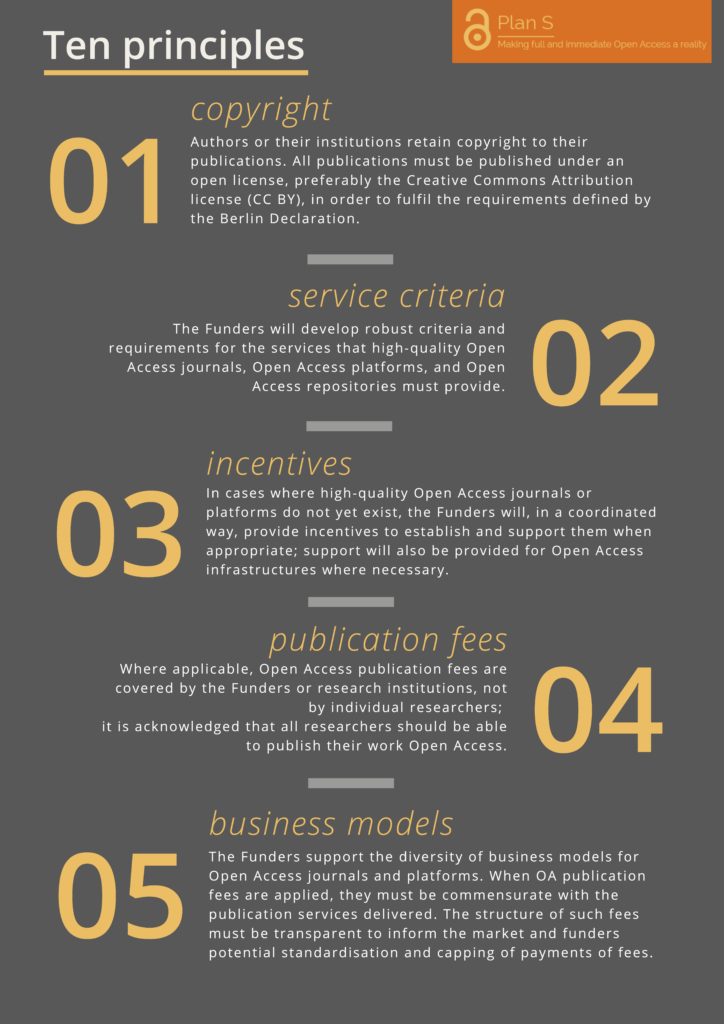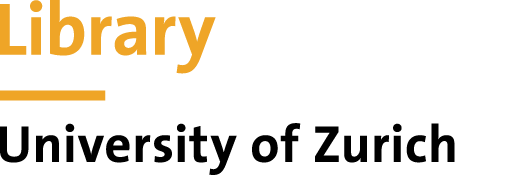
The SNSF joins cOAlition S
Read this post in
 Deutsch
Deutsch
The SNSF joins cOAlition S as of now. cOAlition S is a group of national research funding agencies that aim to accelerate the transition to Open Access. cOAlition S is committed to implement “Plan S” – a declaration of one target and ten principles that outline the requirements for grantees of cOAlition S members. By joining cOAlition S, the SNSF will have to revise its regulations regarding Open Access publishing and make them Plan-S-compliant. The largest change concerns journal articles: Presumably, as of January 2023, all SNSF grantees will have to make their journal articles arising from SNSF projects fully Open Access without any embargo and with a CC-BY license.
What is Plan S?
Plan S consists of one target statement and ten principles. With the target statement, cOAlition S wants that “[…], all scholarly publications on the results from research funded by public or private grants provided by national, regional and international research councils and funding bodies, must be published in Open Access Journals, on Open Access Platforms, or made immediately available through Open Access Repositories without embargo.” The ten principles then outline this core statement in more detail.


Effects on UZH researchers
Out of the ten principles, only principle 1, and somewhat principle 7 are directly relevant for researchers plus the target statement. In sum, as a grantee of a cOAlition S member:
- authors have to make all publications arising from funded projects immediately Open Access, either by publishing in an Open Access journal or an Open Access platform (gold and diamond route) or by self-archiving in a recognized repository (the green route to Open Access). Embargo periods are no longer allowed (target statement).
- there will be a separate timeline for book chapters and books (principle 7)
- authors or their institutions have to retain copyright to their publications (principle 1).
As a member of cOAlition S, the SNSF will now revise their regulations to be Plan-S-compliant and implement these ten principles. The new regulations will be effective from the first of January 2023 onwards: 1) All articles arising from SNSF-funded projects will have to be immediately and fully Open Access and 2) published with a CC-BY license. According to the SNSF, nothing will change for books or book chapters. And the SNSF’ OA funding policy for APCs will continue as before.
Why this change now?
The SNSF was not part of the original cOAlition S when they signed Plan S in 2018 but introduced their own completely revised Open Access policy in April 2018. Now, the SNSF’s Presiding Board re-evaluated the current state of Open Access, the SNSF’s own efforts and how to proceed. A decision was made to join cOAlition S, increase international collaboration and work to improve the publishing landscape together. Further information in the details of the implementation will be made available by the end of this year.
Want to know more?
Two Lunch&Learn Open Science events (1 hour each) at the UZH inform about Open Access and the Rights Retention Strategy.
On 8th of June, Torsten Hothorn, Open Access Ambassador of the SNSF, will talk about “Open Access: Why, when and how?”
On 29th August, Ross Mounce, Director of OA Programmes at Arcadia Fund, will talk about “Rights Retention Strategy” – a set of practical measures provided by cOAlition S to support their grantees in retaining the copyright to their articles. Both talks will last half an hour and are followed by half an hour Q&A with questions from the audience.
More information and registration can be found here: http://t.uzh.ch/lunch.
Melanie Röthlisberger, Team Open Science Services

Comments are closed, but trackbacks and pingbacks are open.